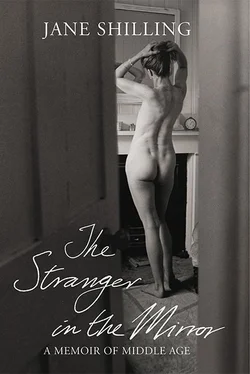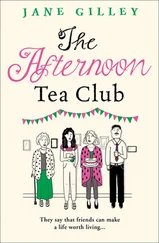HRT turned out to be a fairy’s gift, with the spiteful tendency of such gifts to bring trouble to their recipients. Along with the reports of increased risk of certain cancers, heart attack and stroke, hormone therapy spread a canker over the narratives of middle age. Human instinct is to shun disease, and the effects of diagnosing half the female population with a mortal malaise were predictable. Vanished, the flowering of the autumn rose, the half-amused, half-melancholy subtleties of late love, the selling of the bran now that the flour is gone. Vanished the dignity of the matriarch, the notion of a composure hard-fought, wrenched from suffering and experience, and quite distinct from the invulnerable complacency of extreme youth and beauty. All deleted by the myth that since middle age is a malady for which palliative care is available, its stories are without interest.
Helen Paloge, an American academic and author of The Silent Echo , a critical study of the contemporary narratives of women’s middle age, puts it like this:
Contemporary women novelists have not only ignored the opportunity of addressing the ‘identity change’ that hits women between the eyes at some point in middle age, but by doing so, they have helped perpetuate the regressive myth about female identity… that such identity is formed and finished at one stroke in young adulthood. In their novels, middle age is either a bogus problem that can be remedied by a change of diet, lover, location, or husband; a bogus time that can, nevertheless, be turned back with enough repetition of concepts such as ‘Today’s 50 is 40’; or a bogus idea altogether…
The trouble with modern fictional accounts of midlife is that they tend to stop at the fence that makes the Wife of Bath and Léa, Mrs Dalloway and Mrs Ramsay such rich and resonant characters. Instead of acknowledging the spectral figure of mortality that she sees grimacing behind her own lined and softening reflection, attempting to make his acquaintance, even flirt with him a little, the post-HRT heroine tends to resort either to hopeless resignation or a sprightly denial that anything has essentially changed.
Angus Wilson’s wounded heroine prefigures a group of later middle-aged fictional females who find themselves wrong-footed by life – Anita Brookner’s fastidious perpetual spinsters; Rebecca Davitch, the protagonist of Anne Tyler’s Back When We Were Grown-ups , who feels, at 53, ‘a superfluous woman’; Edie Boyd, the subject of Joanna Trollope’s Second Honeymoon , who is driven to the point of madness by empty nest syndrome.
The world-view of these women is disturbingly browbeaten: powerlessness is their leitmotif. They are hapless, beleaguered, effaced, querulous, uncertain: unable to establish a secure footing between the clamorous demands of the young and the properly old. Their prevailing tone is one of inchoate but dreadful misgiving, spiced with a lively resentment towards who- or whatever (men? children? the family? society? fate? biology?) is to blame for the dreadful reversal in fortune that attacks women of a certain age. That or the mute narcissistic passivity of intelligent women who decline to involve themselves in the cruel battle for the predominance of the most attractive and share the belief of Jane Austen’s less spirited heroines – Jane Bennet, Elinor Dashwood, Fanny Price, Anne Elliot (a belief not much vindicated outside the world of the female imagination) – that a serene and beautiful nature will prove more effective when it comes to securing a kindly fate than the flaunting attractions of good looks and sex appeal.
Nothing in the experience of these defeated or deluded fictional forty- and fiftysomething heroines interested me. Not their dignified retreats from the vulgar hurly-burly of an engaged life, not their circular journeys back to the place from which they started, nor their wistful acceptance of middle age as a diminished, paler, more sedate version of their more vivid and exciting younger lives. I thought there must be something more to it than that.
The spirit of Léa de Lonval survives in the rackety, difficult, sexy and resilient heroines of Mary Wesley’s fiction. The stubborn, questioning high seriousness, the interest in how to lead a good life, of the heroines of Margaret Drabble’s early novels persists in her later depictions of the middle-aged condition. And in short stories by A.S. Byatt and Amy Bloom the desires and passions of middle age are beautifully anatomised.
But in the end none of these became my guide to middle age. Eventually I resorted to a different kind of personal narrative, more venerable even than fiction. I began writing letters. My friend Prudence Entwhistle and I had known each other since our twenties. She, like me, had never married but was living her menopause against a backdrop of adolescent male drama – lots of adolescent male drama in her case, because she worked as a matron at a boys’ boarding school.
We had always been close but suddenly, during odd gaps in the day’s work, we began to exchange emails about the things that were bothering us: the changing texture of our skin; the atomisation of experience in middle age so that, like Woolf’s Mrs Ramsay, we were perpetually Thinking about Life, but never managing to finish the thought; the superb selfishness of teenage boys; the urgent need for a completely different wardrobe at 50, even though our old clothes all still fitted perfectly well; the importance of a proper Plan for the second half of our lives so that they shouldn’t be a muddle like the first half; the desirability of Composure, Order and douceur de vie ; the attractions of becoming Formidable; the best ways of dealing with loss; the possibility – likelihood, even – that our days of falling in love were over.
It was a strange process, this daily recording of our experience. We were like ancient mariners sailing into uncharted waters, mapping the shoals and reefs as we went; mistaking whales’ backs for solid land; fearful of the monsters and prodigies that swarmed and thrashed in the heaving swell beneath us; the change of weather gathering on the far horizon. We were much too busy for our exchanges to echo the delicious speculative languor of adolescence; but still, something about them did remind me of the endless, aimless chatting of my teenage years. Making up a life, trying it on for size, putting it aside, trying another one. Talking the future into existence.
In the absence of stories about middle age, we must make do with what purport to be the facts. With certainty one can say that at some point between the ages of fortysomething and fiftysomething, previously fertile women will become infertile. Everything else is provisional. Unlike successful pregnancies which, in their neatly contained drama of three trimesters, essentially resemble one another, the narratives of menopause are diffuse and hard to categorise. Each middle-aged woman is menopausal in her own way.
As with puberty there is a clearly identifiable point, after passing which one will have moved into a different state of being. In medical terms, that point is marked as the year’s anniversary of your last period, a definition that sounds reassuringly precise until you realise that you’ll only know in retrospect (and then only if your menstrual record-keeping is remarkably well organised) which flow was the last. The effect of this game of biological cat-and-mouse is a disconcerting mirroring of the uncertainties of late childhood.
For thirty-odd years, I gave the efficient mechanism that was my reproductive system scarcely a thought. Two or three times in those decades I wondered if I were pregnant and waited impatiently for the fall of the unfertilised egg that would tell me it was not so. Apart from those alarms, the prodigal succession of potential children formed, ripened and was shed without my paying it much more attention than I give to the monthly waxing and waning of the moon in the night sky.
Читать дальше












